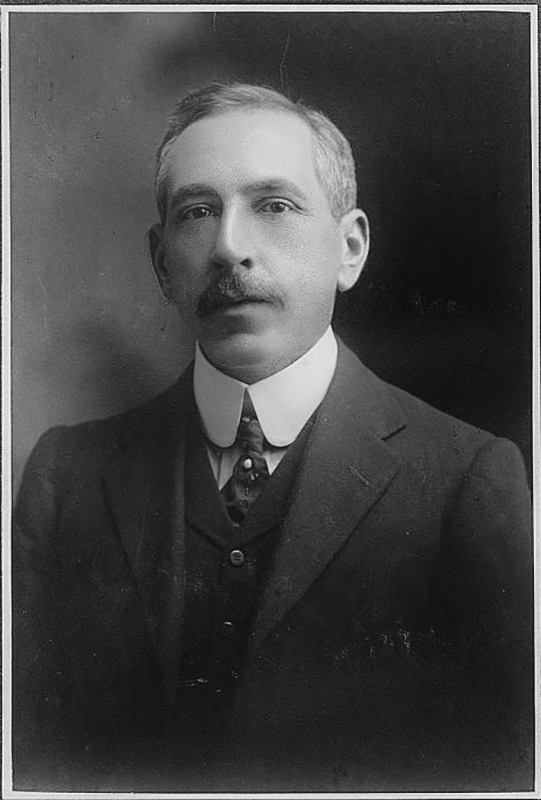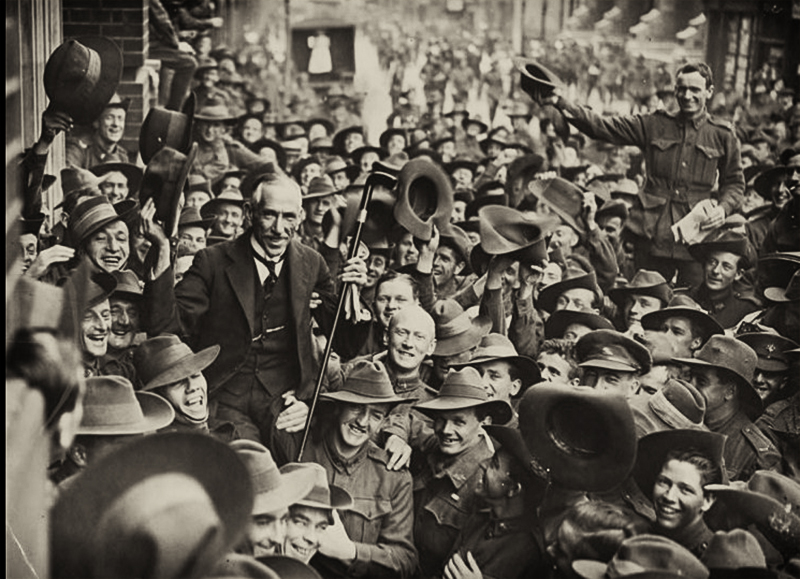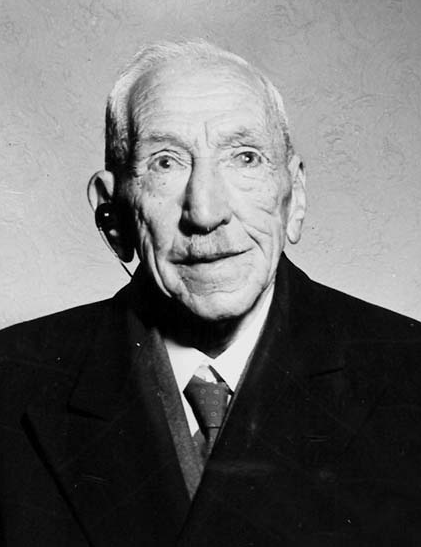Representatives > William Morris (Billy) Hughes
William Morris (Billy) Hughes
William Morris (Billy) Hughes (1862-1952), short and skinny, charming and brutal, eloquent and savage, was always a fighter. In his long political career, he was expelled from several parties and coalitions. Laurie Fitzhardinge describes him as an Australian nationalist and a British loyalist, who fought for the interests of working people as he understood them. For several years – 1890s to 1914 – those interests were those of working class Pyrmont.
Hughes migrated from London to Australia in 1884. In 1890 he settled in Sydney and fell in with political reformers. After organising the shearers’ union, he qualified in law, and was elected to parliament in 1894. He preferred negotiation to strike action: as union secretary of the Waterside Workers he helped them recover from defeat in the 1890 general strike.
At Federation, he won the federal seat of West Sydney, which included Pyrmont and Ultimo. From 1910 to 1913, Labor enjoyed majorities in both Houses, making Hughes Attorney-General. Many Labor policies were frustrated by the federal constitution and High Court interpretations. One such defeat was inflicted by the Colonial Sugar Refinery (CSR), protecting its market dominance. A general election in August 1914 returned Labor to office, and Hughes as Attorney-General. Next year he became Prime Minister.
War separated Hughes from his West Sydney working class base. As a war measure he strengthened Australian producers – including CSR. As Prime Minister he split the Labor Party by advocating conscription. In 1916 he quit the Waterside Workers, and next year resigned from his West Sydney seat.



